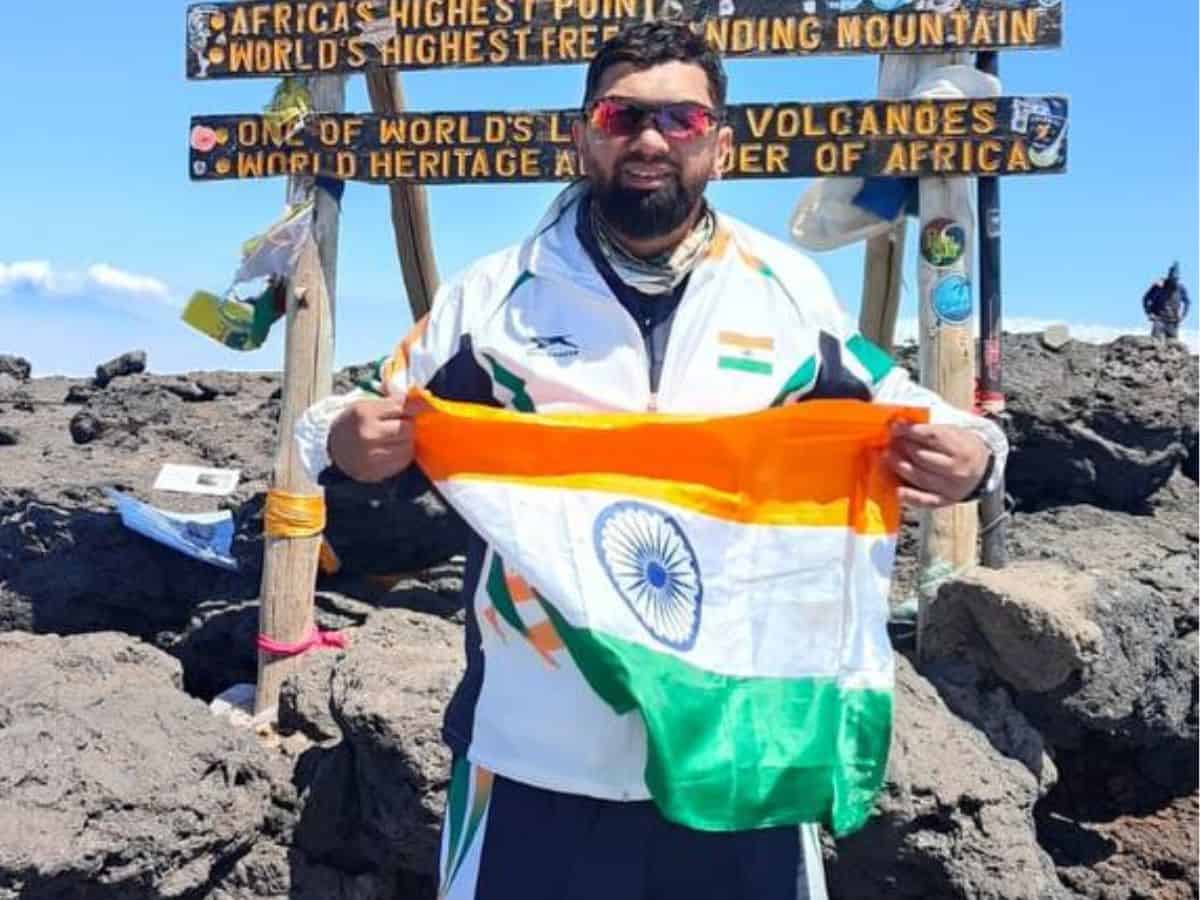
Did poet-philosopher Allama Iqbal have a young man like Imran Fakhi in mind when he penned this hugely motivational couplet?
Fakhi has just returned after successfully conquering Kilimanjaro, the highest mountain peak in Africa and the world’s highest free-standing mountain.
But first look at Iqbal’s couplet:
Nahin tera nasheman Qasr-e-Sultani ke gumbad par
Tu shahin hai, basera kar, paharon ki chattano mein
It can be translated as:
Your aim should not be to make your nest on the dome of a royal palace/
You are a falcon; you should rest on the peaks of mountains.
The poet wants youths to aim high, not remain satisfied with a low goal especially if that comes with compromising self-respect. A royal palace has many worldly comforts to offer, but their respect is limited to the royalty. On the other hand, the falcon flies high and rests in the mountains. It is unrestricted by demands of power and pelf. In short, a falcon symbolises high ambition and one who earns bread with dignity and hard work.
This couplet comes to mind when I think of youths like Imran Fakhi. Originally hailing from a small village in the coastal Konkan region of Maharashtra, Fakhi, 40, is a mountaineer by passion and an engineer by profession employed in Saudi Arabia. On August 15 this year, he was part of a group of four who unfurled the Indian flag at Kilimanjaro, 5,895 metres above sea level. Last year, around this time he had scaled Elbrus, the highest peak in Europe, located in Russia.
What motivates people like Fakhi to risk life and endure pain and fatigue to go on such adventures? It is basically their desire to do what many have not done. To do something extraordinary, face challenges. Do something zara hatke.
I love and envy people who, despite having been born poor and facing disadvantages, go on to achieve remarkable success. Be they students from impoverished background who excel in UPSC or NEET-UG and IIT Entrance Exams, or someone like Fakhi who dream to scale high mountains despite knowing that it takes more than physical and mental fitness to do that.
Is it also because I too had a disadvantaged childhood in a rural setup? Only people who share my background know what it takes to catch up with city-bred, convent-educated boys and girls in a profession with cutthroat competition.
Fakhi tells me that it requires a lot of money to get coached by trained mountaineers at professional institutes in the art of mountaineering. Not everyone can do this.
So how did the son of a former police constable in Mumbai and a homemaker get hooked on to this hobby of scaling mountains?
As a child, he would climb mango trees and hills around his village. But climbing hills and climbing mountains under icy cold winds and maneuvering and finding grips on slippery rocks are different.
Fakhi had earlier told me that in 2016, Fazal, his friend from Saboo Siddik Polytechnic, invited him for a trek to Hampta Pass in the Himalayas.
“I pounced on this offer as I love trekking,” he recalled.
He subsequently tried to reach Pangarchulla in Uttarakhand but abandoned it due to inclement weather. However, in 20018 he trekked up to Mount Stok Kangri in Ladakh, 6000 metres above the mean sea level.
“It was a 17-hour, non-stop climb and descent. It encouraged me to take on bigger challenges,” he said.
That challenge awaited him last year when famous mountaineer Soumen Sarkar from Kolkata invited him to join the expedition to Mount Elbrus. Among several people he thanks for this feat includes Anand Bhansode who facilitated his expedition.
So, which peak is he aiming to scale next? He wants to scale the world’s seven highest mountains, he had told me last year.
Besides Elbrus in Europe, these are Kilimanjaro (Africa), Denali (North America), Mount Aconcagua (South America), Vinson Massif (Antarctica), Mount Kosciuszko (Australia) and Mount Everest (Asia).
Out of seven mountains he has scaled two–Elbrus in Europe and Kilimanjaro in Africa.
Now he has gazed on Mount Koscuuszko in Australia. He needs funds through sponsorship to plan and execute the trek.
Every time this boy from Mendke in Ratnagiri district in Maharashtra goes on his trek to the treacherous mountains, back home his mother and wife get involved in intense prayers; for his safety and successful expedition. Mothers are like that, so also wives.
This time, as Fakhi was scaling Kilimanjaro, his mother phoned me to inform her son was trekking again. There was a mix of concern and excitement in her voice. Concern, that a wrong step by her son could end up in a mishap. Excitement because he would add another feather in his cap on returning after conquering Kilimanjaro.
The latter happened. A hero’s welcome awaits him in Mumbai, including from his alma mater Saboo Siddiq Polytechnic of Anjuman-I-Islam. Anjuman president Dr Zahir Kazi tells me Anjuman is proud of this boy and will felicitate him.
Come home soon, Imran.
This interesting narrative is reproduced from the blog of Mohammed Wajihuddin, a senior journalist with the Times of India, Mumbai.



